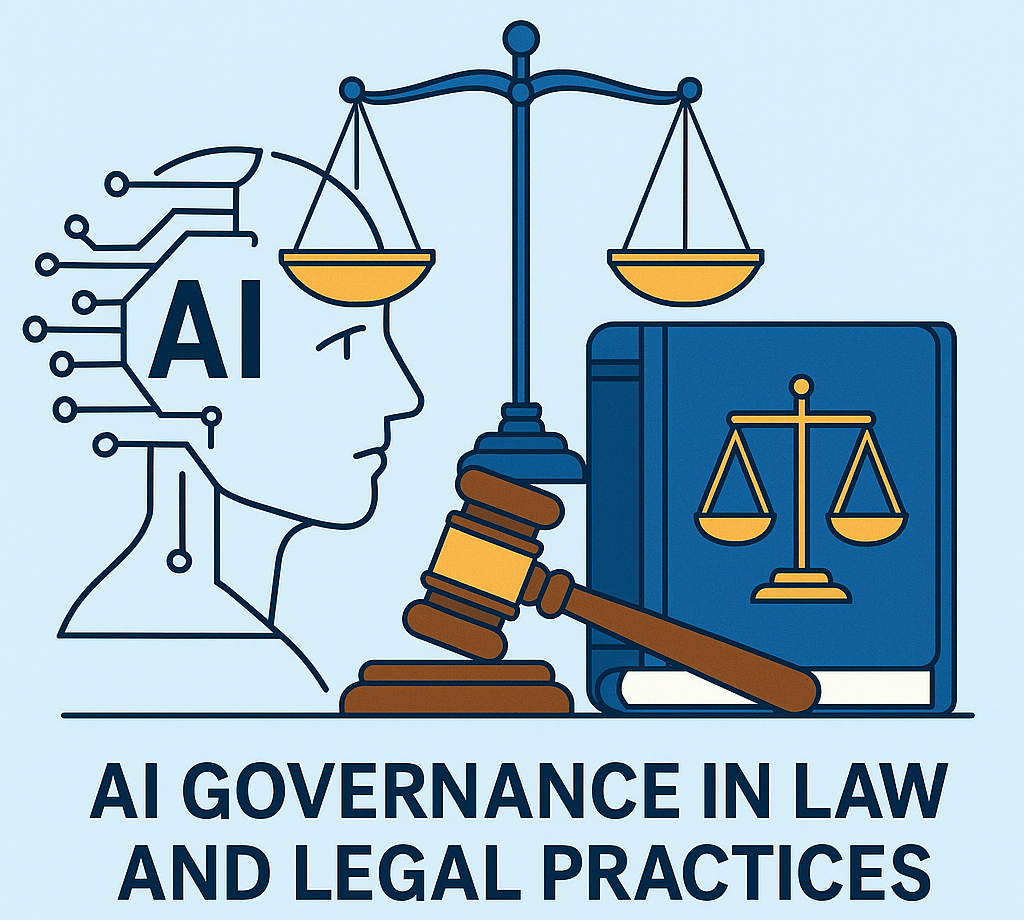The Role of AI Governance in Transforming Law & Legal Practices
7/18/20252 min read


Introduction
The field of law is experiencing a remarkable transformation due to the integration of artificial intelligence (AI) technologies. AI governance in law is becoming crucial as legal professionals adopt these advanced tools to enhance efficiency, improve decision-making, and gain competitive advantages. However, with this transformation comes the necessity for a structured governance framework to manage the ethical and practical implications of AI in legal settings.
Understanding AI Governance
At its core, AI governance refers to the policies and practices that guide the development, deployment, and usage of artificial intelligence systems. In the legal context, it involves establishing guidelines that ensure AI technology is used reliably and ethically. This includes considering issues such as data privacy, algorithmic bias, and accountability for AI-driven decisions. By implementing robust AI governance, law firms and legal agencies can navigate potential risks while reaping the benefits that AI has to offer.
The Benefits of AI in Law
Incorporating AI into legal practices can provide numerous advantages. For instance, AI-powered tools can assist in document review and legal research, significantly reducing the time lawyers spend on these tasks. Furthermore, predictive analytics can help legal teams forecast case outcomes and tailor their strategies accordingly. By leveraging AI, law firms can enhance their ability to serve clients effectively while maintaining high standards of quality.
Nonetheless, as AI technologies evolve, the importance of governance becomes increasingly evident. AI systems can inadvertently reinforce existing biases or present challenges regarding transparency. Establishing a comprehensive governance framework allows legal professionals to ensure that they use AI responsibly, fostering an environment of trust and reliability within the legal system.
Implementing AI Governance Frameworks
To implement effective AI governance, law firms must take a multi-faceted approach. First, it is vital to cultivate awareness and knowledge about AI among legal professionals and stakeholders. This includes educating them on the capabilities and limitations of AI technologies, as well as the ethical obligations that arise from their use.
Moreover, engaging with policymakers, technologists, and legal experts can provide valuable insights into best practices for AI governance. Collaboration fosters a diverse perspective and encourages the development of guidelines that address potential risks while supporting innovation.
Lastly, continuous monitoring and evaluation are essential to adapt governance frameworks in line with evolving technologies and societal expectations. By staying informed about the developments in AI, legal practitioners can ensure that their governance strategies remain effective and relevant.
Conclusion
AI governance in law is an essential component of the ongoing transformation shaping the legal landscape. By establishing structured guidelines and frameworks, legal professionals can harness the power of AI responsibly and ethically. As the integration of AI technologies continues to expand, the role of governance will be critical in ensuring a fair and just legal system that upholds the rule of law while embracing innovation.
Connect:
(571) 306-0036
© 2025. All rights reserved.
